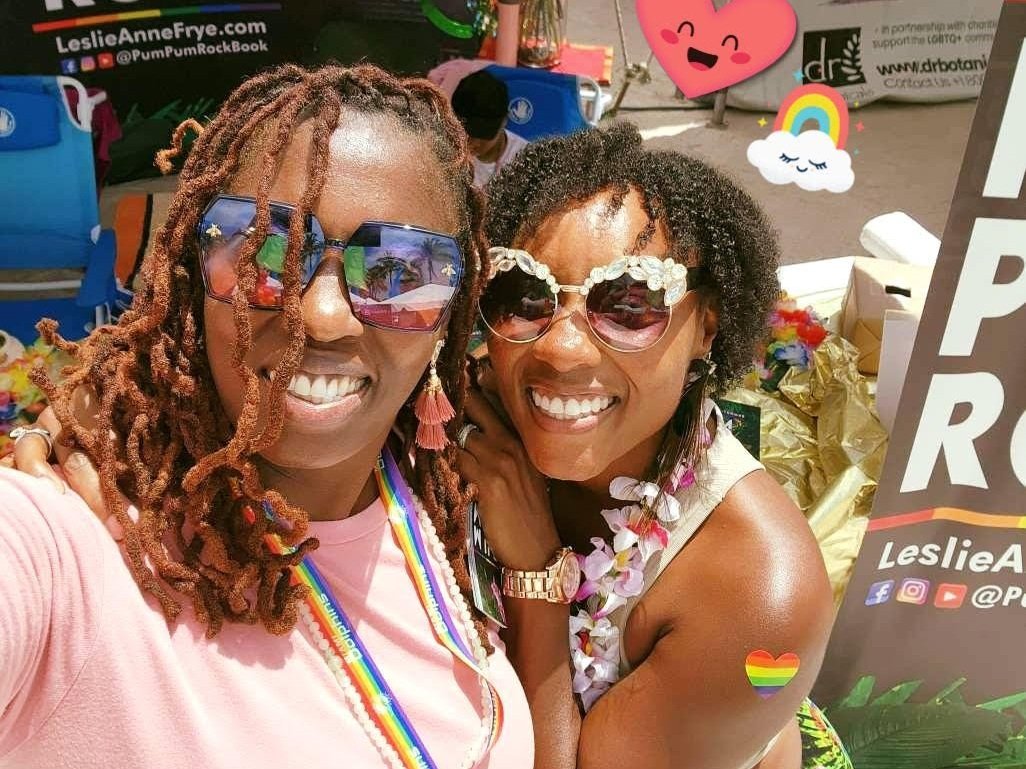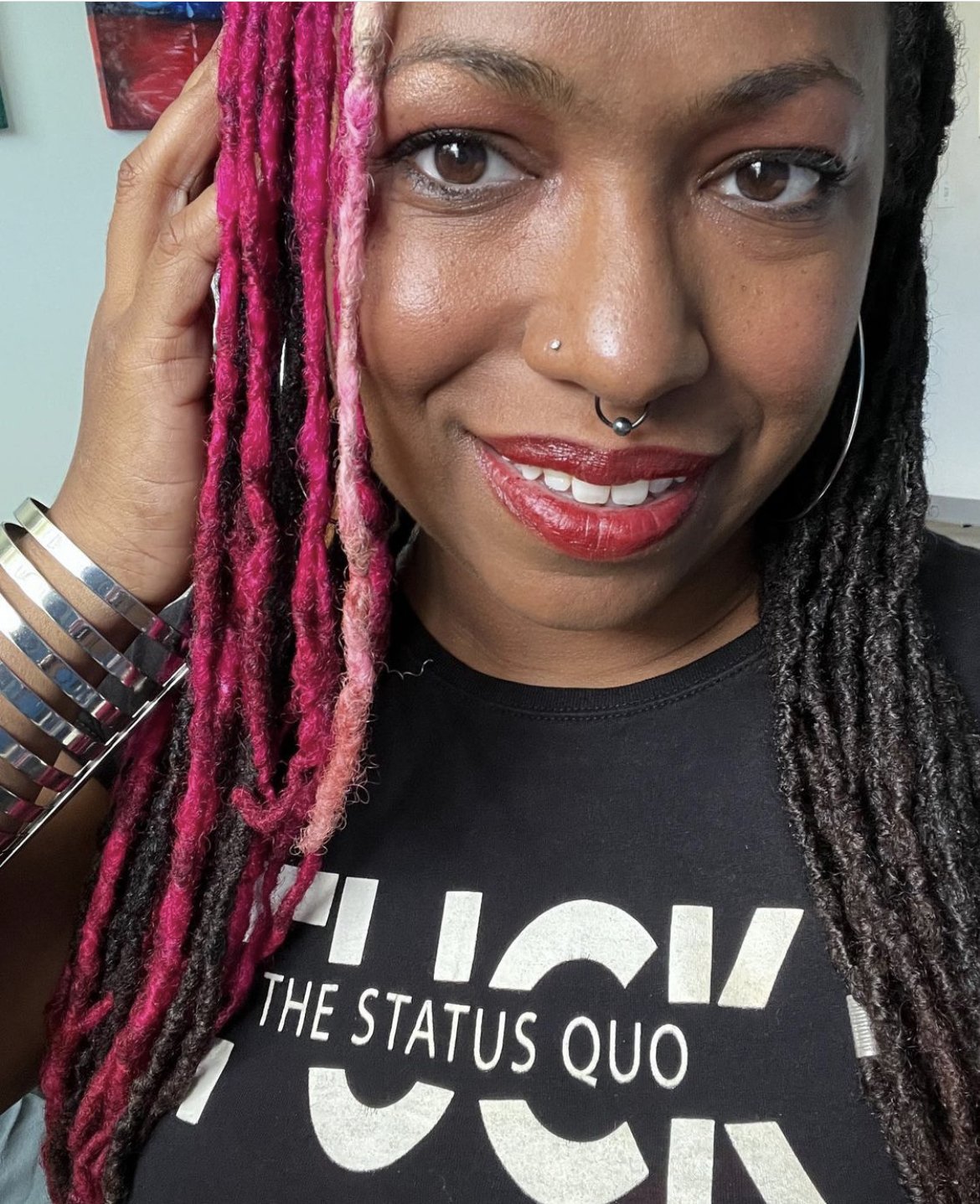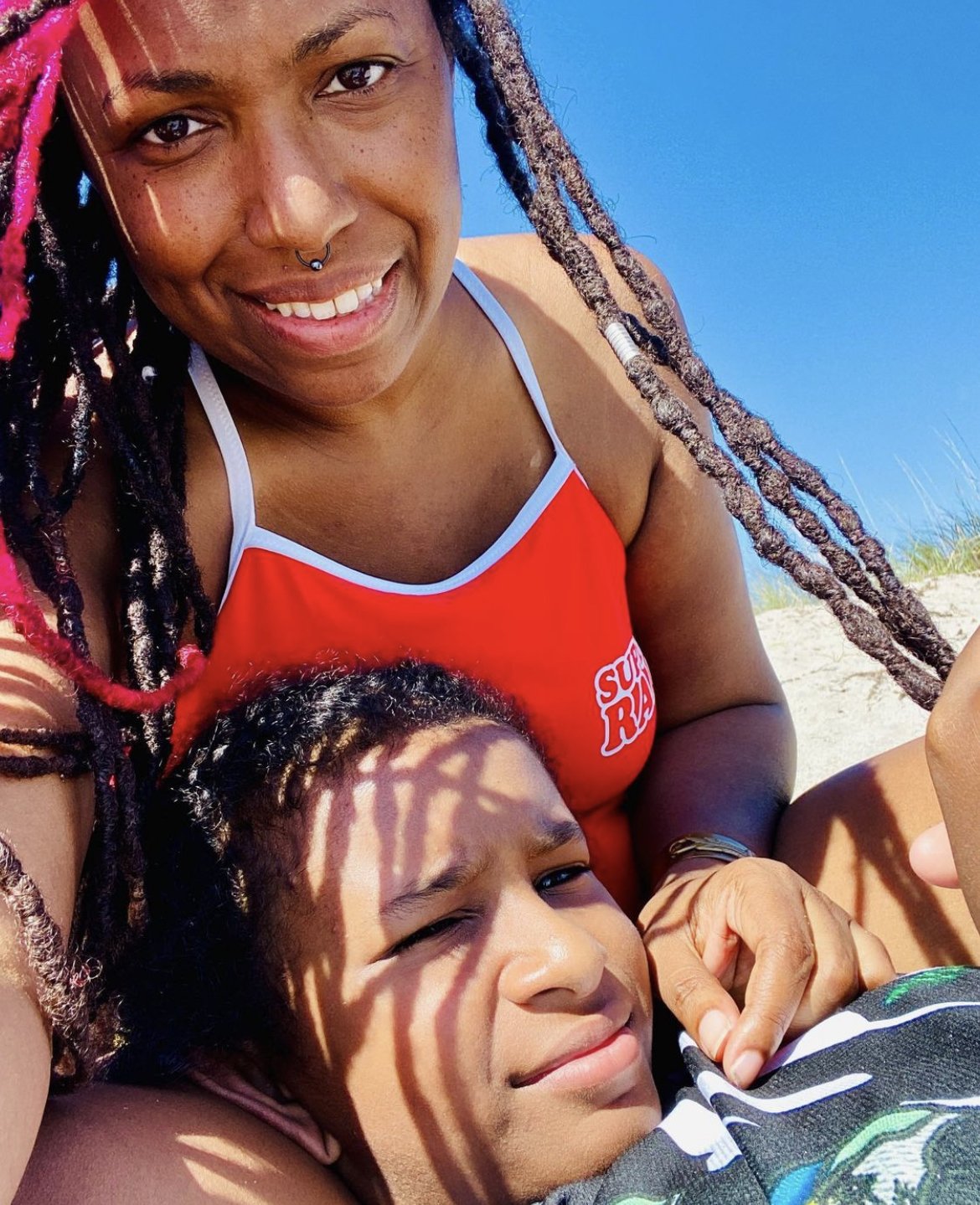Black Queer Families Navigate Racism and Homophobia Amid Wave Of Anti-LGBTQ Legislation in Florida

Republican Gov. Ron DeSantis has made Florida ground zero in the latest manufactured culture war targeting the LGBTQ+ community. This development follows the passage of the controversial Parental Rights in Education Bill, commonly referred to as the “Don’t Say Gay Bill” that went into effect on July 1.
The law bans “instruction” about sexual orientation or gender identity “in kindergarten through third grade or in a manner that is not age appropriate or developmentally appropriate for students per state standards.” A provision in the law also requires school staff members to alert parents about “critical decisions affecting a student’s mental, emotional, or physical health or well-being,” which many advocates believe will result in the involuntary outing of students.
In Lee County, FL, the recent adoption of an LGBTQ Guide is amplifying advocates' fears.
According to its authors, The LGBTQ Guide is “intended to create guidelines for teachers and administrators to help students who need it and to outline state laws for employees.” A provision in the LGBTQ Guide will notify parents — by form — if a student who is "open about their gender identity," is in a physical education class or on an overnight trip. The guidelines further instruct: “Upon notification or determination of a student who is open about their gender identity, parents of the affected students will be notified of reasonable accommodation options available.”
For Black queer Floridians with school-age children, the new Don’t Say Gay law and anti-LGBTQ policies being implemented across the state have had a chilling effect.
“The fact that you’re telling a kid she can’t talk about it makes it feel like her family’s got something weird, that she’s got something weird.”
Queer author Leslie Anne Frye-Thomas is raising two children with her wife Carthy Frye-Thomas, a communications director in Hollywood, a suburb of Fort Lauderdale. While their son is still too young to understand why their family dynamic is subjected to political attacks, Leslie Anne tells The Reckoning that their daughter is aware of how anti-LGBTQ laws in Florida impact her family and classmates who identify as LGBTQ+.
“The Don't Say Gay law doesn't allow teachers to talk about it and it doesn't allow kids to talk about it. So that means she can't say what she did with her parents over the weekend,” Leslie Anne said. “And it's not a super diverse school, so she's one of the only Black kids. So she's gonna have it twice as hard because she sticks out.”
Leslie Anne says that she and Carthy are concerned about the message the law is sending to their daughter about who she is as a child of queer parents.
“It makes it feel like there's something that she should be ashamed of and hiding,” Leslie Anne said. “The fact that you're telling a kid she can't talk about it makes it feel like her family's got something weird, that she's got something weird.”
While conservatives are working to silence discussions about sexual orientation and gender identity in Florida and across the country, Carthy points out that their daughter’s peers have the language for and are already discussing these topics.
“Kids are gonna be kids, and they're gonna talk about it,” Carthy said. “They're talking about, ‘Oh, I'm pansexual.’ And so she comes home and asks, what is that?”
“Or she explains it,” Leslie Anne interjects.
“These are 9, 10, and 11-year-olds in fourth grade and they already have the vocabulary. I don't care what rule or law you put in place, kids are gonna be kids,” Carthy said. “Are they gonna be penalized because they're having a conversation at recess? I don't know how much they're gonna try to regulate, but it's definitely scary.”
While DeSantis and his supporters say the new law will only impact students in kindergarten through third grade, critics say this assertion by conservatives is misleading and they point directly to language in the law that restricts discussions at every grade level that are not “age-appropriate or developmentally appropriate.”
"Anytime a law is vague there’s going to be litigation," Jane Windsor, a Florida attorney who specializes in education law, told PolitiFact. "They did not draft it well, so it could be clearly understood past the third grade."
The bill does not define what is considered appropriate. Critics have said that this may leave school districts susceptible to legal action from parents with varying definitions of what they consider appropriate for their children, PolitiFact further reports.
“That's homophobia. Period. End of story.”
“It's not just about, don't say gay, but it's about silencing people, and it's about giving people space to be who they are, to be comfortable, to find their community, and to give them a sense of chosen family,” said Niki Lopez, a multidisciplinary visual artist and queer single mother to Marley, 13, residing in Fort Lauderdale.
“When you have these laws that try to silence people. What happens? You have kids who feel different. They know that they're different and they don't have the support and resources to affirm them,” Lopez said.
As the law goes into effect, educators and school staff have shared the effects they are experiencing across the state with Equality Florida, the state's largest LGBTQ civil rights organization.
“When you have these laws that try to silence people. What happens? You have kids who feel different. They know that they're different and they don't have the support and resources to affirm them.”
- Niki Lopez
“Rainbow “safe space” stickers are being peeled from classroom windows and LGBTQ educators are being asked to avoid speaking about their families," according to a press statement from Equality Florida.
DeSantis and his Republican colleagues are not limiting their political attacks to banning discussions about sexual orientation and gender identity. They’re also working to ban books that discuss LGBTQ families along with discussions about race with the Stop WOKE ACT—a new law that also went into effect on July 1, and prohibits employers or schools to require training or instruction that may make some people feel they bear “personal responsibility” for historic wrongdoings because of their race, sex, or national origin.
"Elementary school kids should not have woke gender ideology injected into the curriculum. That is inappropriate, that's not what we want in our school system,” DeSantis told reporters during a press event in June.
“Elementary school kids should not have woke gender ideology injected into the curriculum. That is inappropriate, that’s not what we want in our school system.”
For Frye-Thomas and Lopez, the revisionist history by their elected leaders is particularly egregious.
“Because there's so much hate, we just try to have conversations and supplement their education with books, pride rallies, abortion protests, whatever it is,” said Leslie Anne.
Carthy agrees but goes a step further to issue a call to action.
“Black parents and people of color need to take it on themselves and be sure they’re supplementing their children's education,” said Carthy. “If they say you can’t learn about this in school, that won’t stop me from buying the books. In fact, I'm gonna search out the banned books. It's not always in a book, but the onus is on the parents to do their part,” she added.
“Kids need to be able to see themselves in books, in stories, in plays.”
- Niki Lopez
“Kids need to be able to see themselves in books, in stories, in plays,” said Lopez. “And it's homophobic if you can have a story or a book shared, and someone's kissing, and there's a family and they're able to show love. But if it’s two guys standing together—it’s like, ‘No, we're polluting our kids.’ That's homophobia. Period. End of story.”
Five other states — all of them in the South — have enacted laws that limit instruction or discussions about LGBTQ people or issues in school, and at least 32 others have proposed such measures this year, according to the Movement Advancement Project, an LGBTQ think tank tracking the bills.
Georgia is one of the 32 states. CNP condemned the proposed legislation by Georgia Republican lawmakers in a statement released earlier this year.
“We need to work and fight. What am I gonna do, pick Vermont, because I know it’s okay there? Or where am I gonna go—only Atlanta? I want us to be intentional. If we all were intentional about what we do, we could change the world.”
While advocates for equality in Florida are working tirelessly to see discriminatory anti-gay laws in the state repealed, the option for LGBTQ+ people and their families to relocate to a more progressive state has not been taken off the table for discussion.
“We think about that all the time. We're just not sure where we would go,” said Leslie Anne. “Where would be better? If you go back to Africa, you're not necessarily accepted in Africa, either for being gay. So where do you go?”
“If we just go somewhere more liberal, that doesn't solve the problem,” said Lopez. “It doesn't solve the problem for people who may not be as privileged to just up and move as I could. And then, okay, it picks up steam in Florida, but then where does it go after that? So it could go to the same place that we're gonna move to. If you feel that you have to move, I get it, take care of yourself, but if you can stay and fight for your home and fight for your children and fight for those who can't fight, that is important,” she said.
Carthy echoes Lopez’s feelings.
“We need to work and fight,” she said. “What am I gonna do, pick Vermont, because I know it’s okay there? Or where am I gonna go—only Atlanta? I want us to be intentional. If we all were intentional about what we do, we could change the world.”



